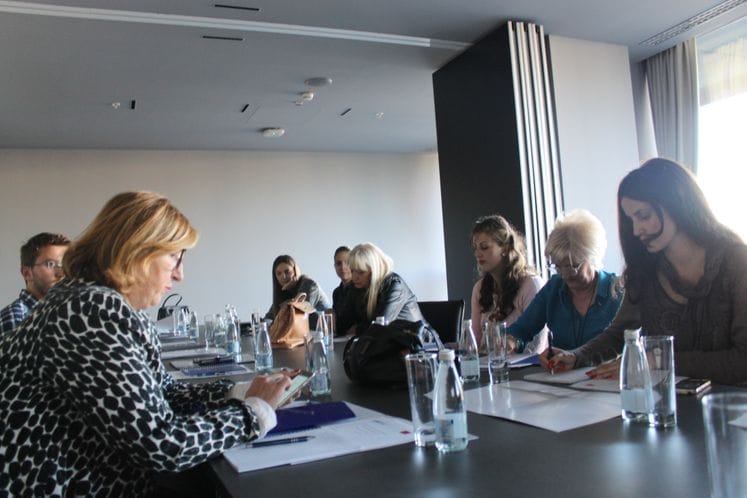- Government of Montenegro
Ministry of Justice The laws require that we are equal, practice does ...
The laws require that we are equal, practice does not confirm

As the state of Montenegro introduces all those international models and standards which are helping its approach to the EU, as well as it strengthens national policies at the local level, was mentioned once more earlier today at the second training for the Network Coordinator / Local from the local level in Podgorica.
The event was organized by the Ministry for Human and Minority Rights and the OSCE Mission to Montenegro while the theme concerned the issue of the participation of women in public and political life.
Head of the Democratization Program at the OSCE Mission, Lia Manjaguanjo, said that the Mission has been working from the very beginning on implementation of the principles and main postulates of gender equality together with the institutional mechanisms for achieving gender equality in Montenegro. The support we provide to coordinators best contributes to the implementation of the standards and principles of this policy, Manjaguanjo said.
Regarding the topic of the training, Manjaguanjo stressed that everyone present has their role in achieving the assumptions that will lead to the equal participation of women and men in public and political life, that is, to establish in time the balance of both sexes in the decision-making sphere. She took the opportunity to invite attendees to present their experiences in practice, as well as ideas on how to achieve the equal participation of women and men in political life.
Head of the Department for Gender Equality Biljana Pejović wished successful training for the participants on behalf of the Ministry for Human and Minority Rights.
Pejovic emphasized the important role of the Ministry in the implementation of equal opportunities policies as one of the institutional mechanisms and praised the successful cooperation with the OSCE Mission in Montenegro, especially at the local level. She assessed that through the joint action of all the structures of the Montenegrin society, the role of women in Montenegro has changed significantly but not sufficiently.
She explained that the lex specialis Law on Gender Equality, which was harmonized with EU directives, ie. international conventions and practices was adopted in 2015,but that the planned results were not achieved, although it is evident in the history of Montenegrin parliamentarism, that this is the best result of 23.46% participation of women in Parliament. She stated that work on the field is of great importance, as well as raising awareness of general and professional public through campaigns on the importance of achieving equal opportunities policy. Pejović also stressed the importance of the Coordinating Network because, through their activities, they directly influence the decision makers in local governments about the need to implement gender policies.
Gender Equality Trainers Slavica Striković and Branka Vlahović held presentations on gender, gender and gender mainstreaming, the right to vote for women, women and elections, and the obligations and opportunities for promoting gender equality, the statutes of political parties, local action plans, and the new Plan for achieving gender equality 2017-2021.
On the second day of the training, participants will beable to hear presentations on the reasons why women are important to political parties, women and the media, and ultimately, the political participation of women in Montenegro.
Ministry for Human and Minority Rights
